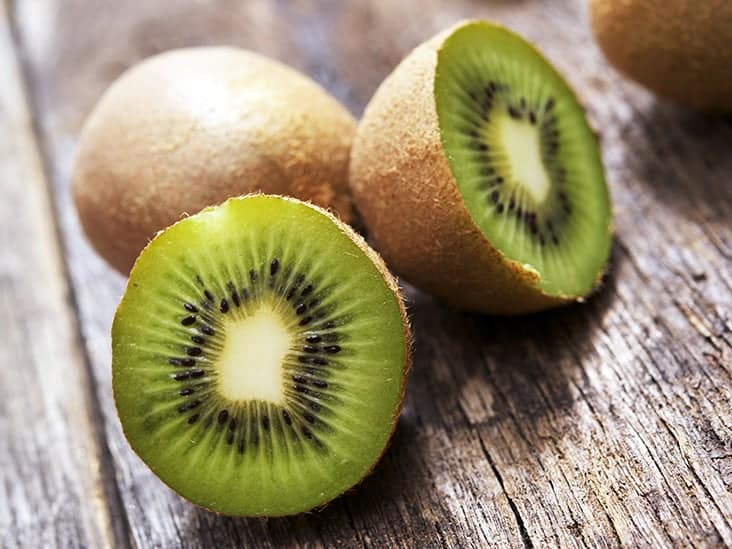Kiwi Food Allergy in Children: A Parent’s Guide to Understanding and Management
Understanding Kiwi Food Allergy
Hello, wonderful parents! Are you concerned about food allergies in your little ones? One fruit that often flies under the radar is the humble kiwi. But for some children, this fuzzy fruit can be the source of allergies. Let’s peel back the layers to understand kiwi food allergy and how you can manage it for your child’s safety and your peace of mind.
Kiwis are a nutritional powerhouse, packed with vitamin C, dietary fiber, and various antioxidants. However, they can trigger an allergic reaction in some children. This guide is tailored for loving parents who want to gain insight into kiwi allergies, from spotting symptoms to navigating the daily care with heaps of helpful tips!
Symptoms of Kiwi Allergy
Being aware of the symptoms is the first step to managing a kiwi food allergy. The symptoms can range from mild to severe and usually appear shortly after consuming the fruit. Here’s what you might notice:
- Itchy Mouth or Throat: A tingling sensation or itchiness in the mouth, lips, or throat right after eating kiwi.
- Skin Reactions: Hives, rash, or eczema can develop as a result of the body’s immune response.
- Gastrointestinal Symptoms: Symptoms like nausea, vomiting, abdominal pain, or diarrhea might occur.
- Respiratory Issues: Difficulty breathing, wheezing, coughing, or a runny nose can be symptomatic of a kiwi allergy.
- Anaphylaxis: In rare cases, a severe and potentially life-threatening allergic reaction called anaphylaxis might occur.
Diagnosing Kiwi Allergy
If you suspect your child has a kiwi allergy, it’s important to confirm the diagnosis with a healthcare professional. Methods for diagnosing may include:
- Medical History: Your child’s doctor will discuss the symptoms and any family history of allergies.
- Skin Prick Test: A small amount of the allergen is placed on the skin, and the area is pricked to see if a reaction develops.
- Blood Test: Checks for specific antibodies that might indicate an allergy to kiwi.
- Oral Food Challenge: Done under medical supervision, a child is given gradually increasing amounts of kiwi to check for a reaction.
Managing Kiwi Allergy
Once a kiwi allergy has been diagnosed, managing it becomes a part of your daily routine. Here are some strategies to ensure your child’s safety:
Avoidance
The most effective way to manage a kiwi allergy is to avoid the fruit entirely. This includes checking ingredient lists on food labels, as kiwi can sometimes be found in fruit salads, smoothies, and other products. Educating your child about their allergy and teaching them to avoid kiwi products is crucial.
Reading Labels
Understanding food labels is vital for parents managing a child’s kiwi allergy. Look out for any mention of kiwi or kiwi extracts in the ingredients list. Remember, some foods might not list kiwi specifically but may include it as part of ‘natural flavors’ or ‘fruit mix.’
Communication
In school settings or social gatherings, make sure to communicate your child’s kiwi allergy to caregivers, teachers, and friends’ parents. Having an action plan in place at these places is important should an accidental exposure occur.
Emergency Action Plan
Work with your child’s healthcare provider to establish an Emergency Action Plan (EAP), which should include the steps to take in case of an allergic reaction. This can range from administering antihistamines for mild reactions to using an epinephrine auto-injector if prescribed.
Medical Alert Bracelet
Consider having your child wear a medical alert bracelet or carry an allergy card. This can provide essential information to anyone who might need to help your child in an emergency.

5 Things Every Parent Should Know When Preparing for Kiwi Allergy in Children
Discovering your child may have a kiwi allergy can be challenging, but with a few proactive steps, you can ensure their safety and ease your worries. Here are five key things to know as you prepare.
Creating an Allergy-Safe Environment
Establishing an environment that’s safe from allergens is the foundation of managing a kiwi allergy. This means maintaining a clean and controlled space at home where kiwi is not brought in. When shopping for groceries or eating out, be sure to inquire about the ingredients used in dishes that might not obviously contain kiwi.
Educating Family and Child
Education is a powerful tool in allergy management. Teach your child about their allergy in an age-appropriate way, and ensure they understand the importance of avoiding kiwi. Additionally, inform family members and close friends about the allergy, so they’re aware and can help maintain the child’s kiwi-free environment.
Plan for School and Social Events
Schools, birthday parties, and playdates can pose a risk for children with kiwi allergies. Meet with school officials to discuss your child’s needs and ensure a plan is in place. For social events, communicate your child’s allergy with the hosts in advance and consider providing safe alternatives they can enjoy.
Travel Precautions
Travelling can introduce unknown variables into an allergy-safe routine. Always carry safe snacks for your child, and research restaurants and food options at your destination beforehand. Additionally, carry a translated allergy information card if you’re travelling to a place where the primary language is not your own.
Regular Check-Ups and Updates on Allergy Status
Allergies can change over time; what may be a severe reaction now could potentially lessen with age. Regular check-ups with an allergist are crucial to monitoring your child’s kiwi allergy and adjusting the management plan as needed. Plus, this gives you and your child the opportunity to ask questions and stay informed.
Remember, every step you take makes a world of difference in safeguarding your little one’s health and well-being. By staying informed, vigilant, and prepared, you are their best advocate in managing kiwi allergy dangers. Together, with love and care, you can navigate this challenge and enjoy many happy, healthy days ahead!
See more great Things to Do with Kids in New Zealand here. For more information see here
Disclaimer
The articles available via our website provide general information only and we strongly urge readers to exercise caution and conduct their own thorough research and fact-checking. The information presented should not be taken as absolute truth, and, to the maximum extent permitted by law, we will not be held liable for any inaccuracies or errors in the content. It is essential for individuals to independently verify and validate the information before making any decisions or taking any actions based on the articles.




